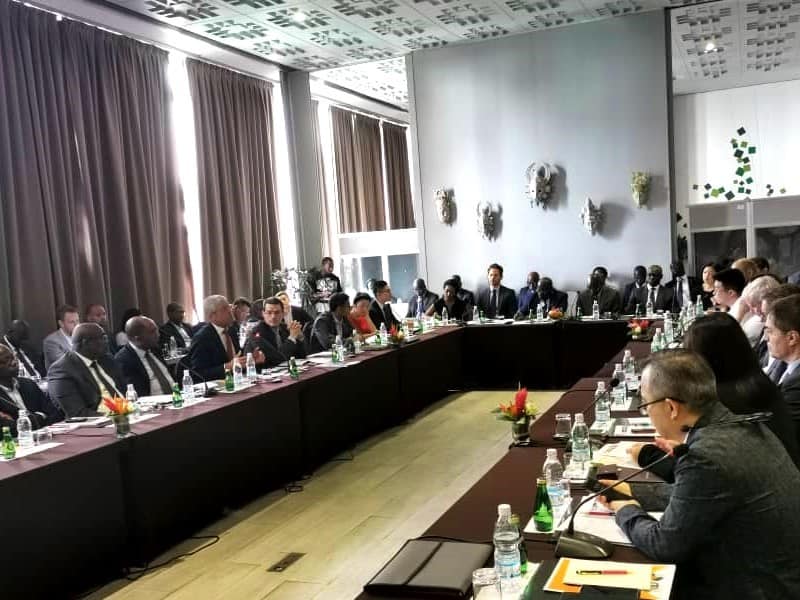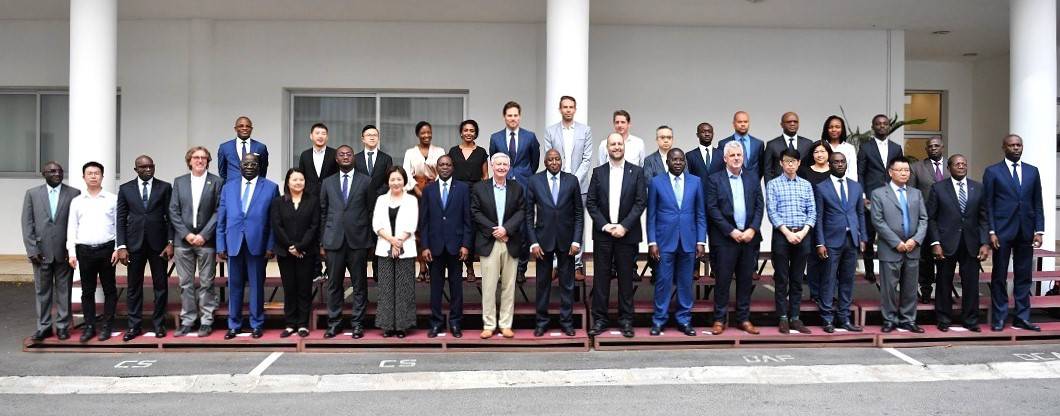ABIDJAN, Cote d’Ivoire—Western Africa is gaining traction with the private sector as a region to expand existing businesses and take advantage of ideal conditions of economic growth.
Indeed, the EY Attractiveness Report on foreign direct investment issued in June described West Africa as a “high-growth region,” with Ghana ranked as one of the world’s fastest growing countries and Cote d’Ivoire as the single fastest growing economy in the region. EY (formerly Ernst & Young) ranks the United States and France as the largest single foreign investors in Africa.
With an eye on large workforces and untapped expansive markets, international companies are now actively pursuing investment opportunities in the region and working with local government entities to facilitate the process.
In mid-November, I was fortunate to attend the Tailor and Garment Industry Roadshow in Abidjan, Cote d’Ivoire, organized by the Tony Blair Institute for Global Change to witness in person the first steps towards potentially making major investments in the region. In collaboration with the Cotton and Cashew Council, the Tony Blair Institute organized this event to host a tailor and garment delegation of the American Chamber of Commerce of Hong Kong.
Though Asia in general, and China in particular, is the leader in the tailor and garment industry, companies are looking more closely at West Africa. The delegation visiting Abidjan openly expressed its interest in expanding operations into Western Africa, including sourcing and processing for garment production and distribution. High-level investments were previously made by members of the delegation in Ethiopia with very positive results.
Consequently, the goal of this visit was to develop a similar approach in Western Africa and create tailor and garment-focused industrial parks to diversify production sources, create jobs and target a growing socially conscious consumer market. In addition to Cote d’Ivoire, the delegation also visited Ghana and Togo to promote a regional approach to potential expansion.

As the Deputy Chief of Party for the West Africa Trade and Investment Hub, I was focused on how the region’s garment industry could gain traction on the world market—from design to production. The Trade Hub, which is five-year initiative funded by the U.S. Agency for International Development, seeks to promote the expansion of apparel, agriculture and other industries to support the region’s path to self-reliance.
Based on the delegation’s insightful interventions, the Cotton and Cashew Council and the Ivorian Government, here are my key takeaways that could inform future partnerships in any business network:
• Contrary to popular belief, the low cost of labor is not the driving force of future investments. The cost of labor in relation to total output is extremely favorable in Southeast Asia. However, West Africa has other competitive advantages that make the region attractive.
• Sustainability is extremely important to investors. Jobs created and overall impact must be long-term.
• Traceability is a key requirement for sourcing raw materials to ensure products are being made in an equitable and socially-positive manner, particularly with respect to women. Consumers are increasingly demanding these requirements and the private sector is listening.
These initiatives show great promise for the opportunities the USAID-funded West Africa Trade and Investment Hub will explore during the next five years. There are numerous opportunities in many business networks that can generate private investment, create jobs, and increase exports. As I was fortunate to see, investors are actively pursuing these opportunities in a dynamic fashion.
Although many countries in Southeast Asia provide cheap labor, Western Africa offers other benefits to address evolving consumer demands. The Trade Hub looks forward to co-investing with partners in the private sector across the region to also seize this potential for increased economic growth and improved livelihoods of smallholders in Western Africa.
Karl Littlejohn is the Deputy Chief of Party for the West Africa Trade and Investment Hub. With its primary office in Abuja, Nigeria, the Trade Hub will also have offices in Cote d’Ivoire and Senegal.


